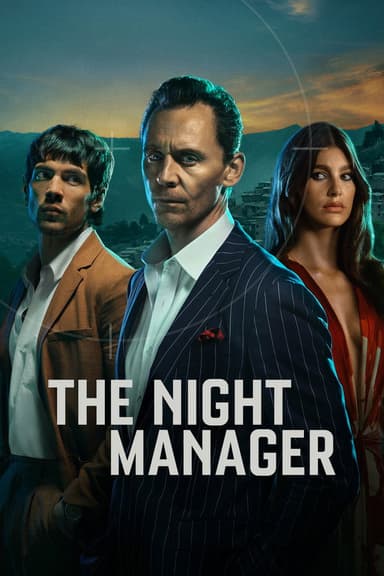
The Little Drummer Girl
2018 • Drama, War & Politics • TV-MA
Brilliant young actress Charlie strikes up an acquaintance with an intriguing stranger while on holiday in Greece, but it rapidly becomes apparent that his intentions are far from romantic.
Why you should read the novel
While the TV series provides an engaging visual experience, reading John le Carré’s original novel, The Little Drummer Girl, allows you to immerse yourself in the author’s nuanced storytelling and psychological depth. The book explores the motivations and inner conflicts of its characters in far more layered and satisfying ways than the series is able to convey on screen. Delving into the novel lets you appreciate the subtleties of le Carré’s prose and the complexity of international espionage that unfolds over time, making the reading experience both exhilarating and thought-provoking.
The novel is also notable for its meticulous historical context, placing readers directly into the volatile political atmosphere of the late 1970s and early 1980s. Through richly drawn characters and carefully constructed dialogue, le Carré invites you to grapple with the difficult moral questions and shifting allegiances that define the world of espionage. The book does not rush; instead, it invites contemplation and a gradual unravelling of the truth behind every motive and maneuver.
Choosing to read the book over watching the show also means direct engagement with John le Carré’s masterful narrative voice, widely recognized for elevating the spy genre to literary excellence. You gain access to the full spectrum of backstories, secondary plots, and thematic richness that may be simplified or lost when translated to screen. For an authentic and rewarding espionage experience, the novel is a must-read.
Adaptation differences
The television adaptation of The Little Drummer Girl makes notable changes in pacing and emphasis when compared to the book. The series, while visually captivating, often condenses or omits the intricate psychological explorations and internal dialogues that are central to the novel. John le Carré’s detailed portrayal of Charlie’s inner turmoil and gradual transformation receives less nuance in the series, resulting in a more straightforward depiction of her espionage journey.
Another significant difference is the way the show approaches the political and moral complexities inherent in the story. While the book devotes significant space to exploring the ethical dilemmas and shifting perspectives surrounding Israeli-Palestinian conflict, the series streamlines these aspects and sometimes presents them in a more dramatized or visually stylized manner. This shifts the viewer’s focus from the intellectual and thematic debates that are threaded throughout the novel.
The character development and backstory, especially for secondary characters, are more fully realized in the book. Le Carré’s novel unfolds many layers of the motivations, backgrounds, and inner struggles of central and supporting figures, whereas the adaptation relies more heavily on plot-driven moments and the performances of its lead actors. Certain relationships and narrative arcs receive greater attention or resolution in the pages of the novel than on screen.
Finally, the structure and pacing of the story differ between formats. The slow-burn tension and gradual build-up of suspense that characterize the novel allow for contemplation and greater emotional investment. The series, constrained by its limited runtime and the need for visual engagement, moves at a faster pace and sometimes opts for spectacle over introspection, sacrificing the book’s subtler moments in favor of heightened drama.
The Little Drummer Girl inspired from
The Little Drummer Girl
by John le Carré


